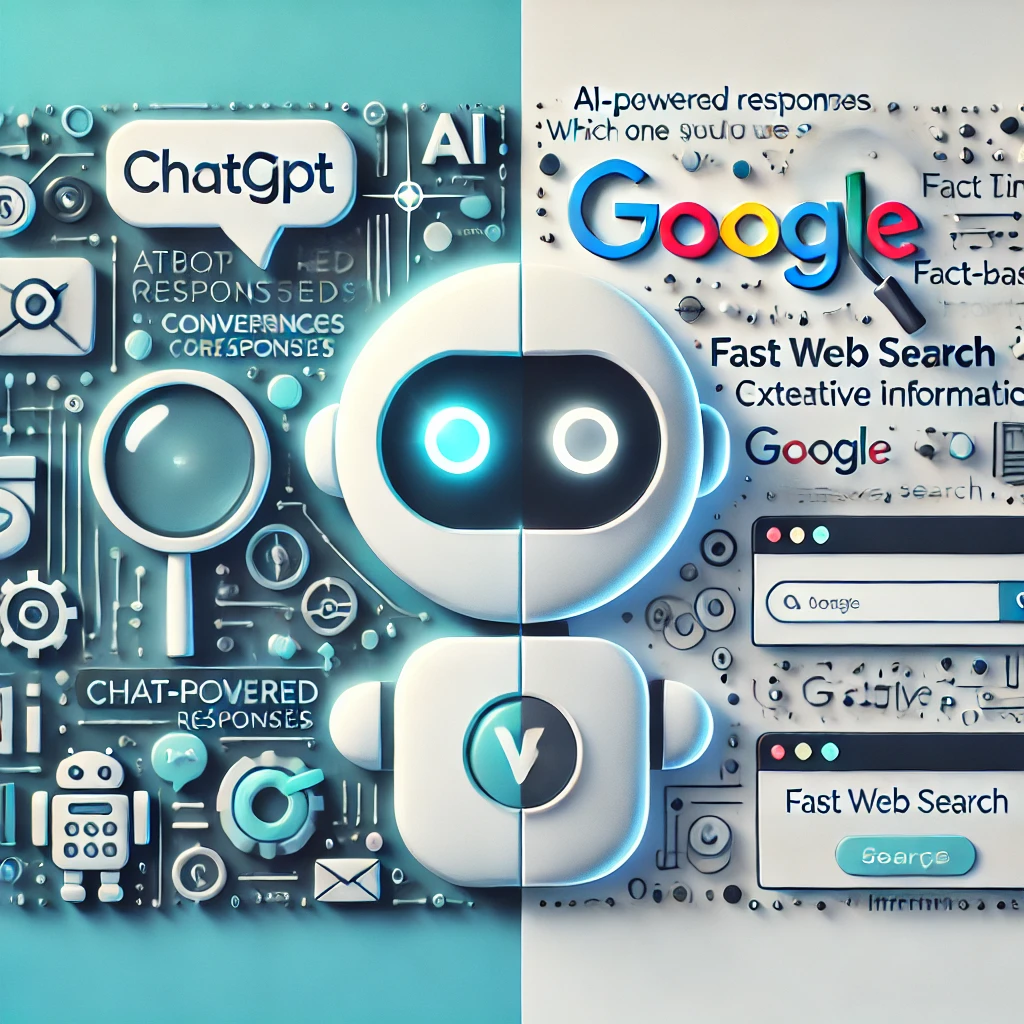ChatGPT vs. Google: Which One Should You Use and When?
- Avi Zukarel
- Feb 7
- 3 min read
Updated: Mar 5
In today’s digital world, information is just a few keystrokes away. Whether you’re searching for the latest news, solving a complex problem, or brainstorming creative ideas, two major tools stand out: Google and ChatGPT. But which one should you use, and when?
Both serve different purposes and excel in distinct ways. This article breaks down their strengths, weaknesses, and ideal use cases to help you make the right choice.
What is Google?
Google is the world’s most powerful search engine, handling over 8.5 billion searches per day. It scours the web to find the most relevant pages, articles, and resources for your query.
Strengths of Google:
Real-time, up-to-date information: Perfect for breaking news, current events, and live updates.
Extensive database: Access to billions of indexed pages, including research papers, government websites, and product listings.
Diverse content formats: Results include articles, videos, images, maps, and academic papers.
Fact-based and objective: Ideal for verifying information from multiple sources.
Limitations of Google:
Information overload: Sorting through multiple sources can be time-consuming.
SEO influence: Results are ranked based on algorithms, which means the top results might not always be the best answers.
No direct conversation: Google provides information but doesn’t engage in a back-and-forth discussion to refine your query.
What is ChatGPT?
ChatGPT is an AI-powered chatbot developed by OpenAI that generates human-like responses to text inputs. Unlike Google, it doesn’t retrieve pages from the internet; instead, it uses a vast dataset to generate responses in real-time.
Strengths of ChatGPT:
Conversational and interactive: You can ask follow-up questions and get tailored responses.
Summarization and synthesis: Ideal for digesting complex topics quickly.
Creative and idea generation: Great for brainstorming content, writing, and problem-solving.
No ads or distractions: Unlike search engines, responses are not influenced by advertising or SEO rankings.
Limitations of ChatGPT:
Limited real-time knowledge: It doesn’t have direct access to the latest news, updates, or live information.
Potential for errors: Responses are generated based on training data and may not always be 100% accurate.
Lack of source citations: Unlike Google, it doesn’t provide direct links to where the information came from.
When to Use Google vs. ChatGPT
Use Google When:
You need real-time information (e.g., news, stock prices, weather forecasts).
You’re looking for product reviews, shopping deals, or official government resources.
You need academic research, citations, or verified sources.
You want multimedia results like videos, images, or maps.
Use ChatGPT When:
You need a quick summary or explanation of a topic.
You’re brainstorming content ideas, scripts, or creative writing.
You’re looking for personalized recommendations or advice.
You want to refine your thoughts through an interactive conversation.
The Best of Both Worlds
Rather than choosing one over the other, many users find that combining Google and ChatGPT offers the best results. Here’s how:
Use Google first to gather factual data, research, and live information.
Use ChatGPT next to refine your understanding, get summaries, or generate creative insights based on your findings.
For example, if you're researching the best AI tools for business, Google will show you multiple articles and comparisons, while ChatGPT can help you summarize insights, and generate use cases.
Conclusion
Both ChatGPT and Google are powerful tools, but they serve different purposes. Google is your go-to for real-time, fact-checked information, while ChatGPT excels in personalized, conversational responses. By understanding their strengths and limitations, you can use each tool more effectively and get the best results for your queries.
Want to explore more AI tools? Check out our AI tool finder and discover the best solutions tailored to your needs!




Commentaires